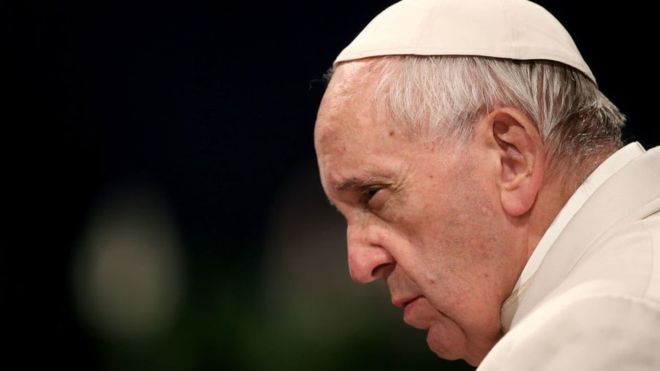Pope Francis launches an emotionally charged visit next week to Colombia, to call for reconciliation as the country emerges from Latin America’s longest civil war in a contested peace process.
In his fourth visit to his native region of the world since becoming pope four years ago, the 80-year-old Argentine now heads to one of Latin America’s most troubled countries.
On a five-day tour starting Tuesday, he will meet with victims of the war at a delicate time as the country gradually turns the page on more than half a century of conflict.
Colombia’s biggest guerrilla group, the FARC, has disarmed under a historic peace accord, though critics say the rebels are getting off too lightly.
“It is true that the pope is coming to a very polarised country, but he knows that all Colombians desire peace, in the spirit of unity and justice,” said Monsignor Octavio Ruiz, a member of the papal delegation.
“Such a peace is only possible if the causes of social injustice, inequality and oppression are tackled.”
POPE IN PEACE PROCESS
Francis’s visit comes at a key moment in the peace process, which he has supported.
The FARC is transforming into a political party.
Meanwhile Colombia’s last remaining rebel force, the 1,500-strong ELN, hopes to announce a ceasefire as it holds its own peace talks with the government.
Colombians narrowly rejected the peace deal in a 2016 referendum.
Pope Francis tried unsuccessfully to mediate between President Juan Manuel Santos and the lead opponent of the accord, conservative leader Alvaro Uribe.
Santos and the FARC tweaked their agreement and the government pushed it through congress in spite of ongoing resistance from Uribe’s side.
PAIN AND PARDON
The Colombian conflict has left 260,000 people confirmed dead, 60,000 unaccounted for and seven million displaced.
With the peace deal raising bitter debate about justice and compensation for victims, Francis is expected to talk to Colombians about reconciliation.
The slogan of his visit is “Let’s take the first step”.
“Taking the first step means recognising the suffering of others and forgiving those who have hurt us,” said the Colombian bishop heading the organising committee for the trip, Fabio Suescun.
This means “understanding the pain of those who have suffered, healing our hearts, discovering the country hidden behind the mountains and building a country in peace”, he added.
MARTYRS AND TOURISTS
Francis will tour four cities and meet crowds of faithful from September 6 to 10.
Based at the Vatican mission in Bogota, he will make excursions by airplane to the cities of Villavicencio, Medellin and Cartagena.
In the capital he will meet with Santos and with leaders of the Catholic Church in Venezuela who have been trying unsuccessfully to mediate in their country’s crisis.
In Villavicencio, he will beatify two Catholic priests killed during the conflict.
In Cartagena, he will pray at the church of Saint Peter Claver, patron saint of slaves.
He will ride around in three locally-made, non-bullet-proof Popemobiles.
Despite security concerns, he is expected to embrace people in the crowds as on previous trips to Bolivia, Brazil, Cuba, Ecuador and Mexico.
Organisers estimate that some two million people will flock to see him ride through the streets and celebrate mass in Bogota.
As well as offering Colombia’s passionate Catholic worshippers a glimpse of their spiritual leader, officials hope the trip will boost tourism and the economy.
Colombian authorities have spent more than $9 million preparing for the visit.
They forecast it will attract 1.5 million tourists and generate $68 million in revenues.
AFP



